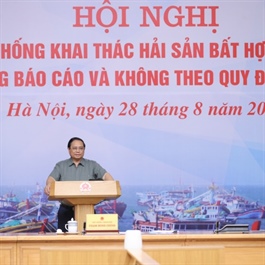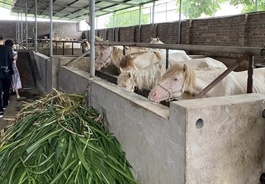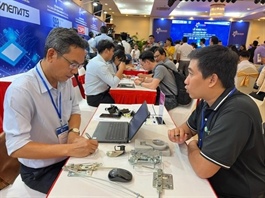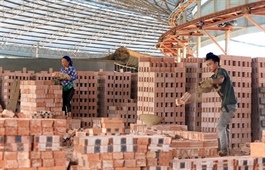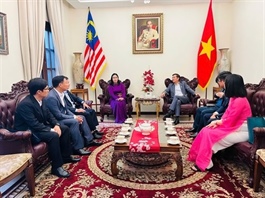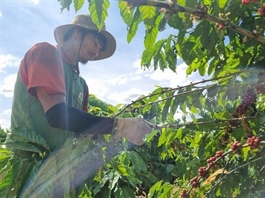Tightening social media advertising
Tightening social media advertising
The current regulations on advertising have not kept pace with online selling and the role of influencers, experts have warned.
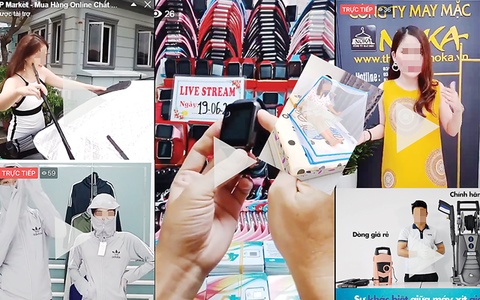
Illustrative photo. Online advertising in social media. — Photo vneconomy.vn |
The Draft Law proposing amendments and additions to several provisions of the Law on Advertising will be up for discussion at the next session of the Assembly, with a key focus on social media marketing.
Proposals to tighten controls, which have sparked significant interest and debate among the public, will be discussed at 8th Session of the 15th National Assembly in October 2024.
According to Statista, the Vietnamese advertising market was projected to generate nearly US$2.3 billion in revenue in 2023, with online advertising accounting for the largest share at approximately $1.211 billion.
The Việt Nam Advertising Association forecasts that in 2024, online advertising could reach between $3-4 billion.
Currently, 70 per cent of this revenue is controlled by international social networks such as Meta, Google and TikTok, while Việt Nam collects only a small fraction in taxes.
This dominance of cross-border advertising has led to significant issues, including false advertising, substandard products and legal violations (such as gambling, betting and illegal loans), which have caused public concern.
The Ministry of Culture, Sports and Tourism said that after a decade of enforcing the Advertising Law, it has several limitations and inadequacies.
The ministry is seeking feedback on a draft aimed at amending and supplementing certain provisions of the existing Advertising Law. This draft includes new measures under Article 23 and Article 23a to enhance the regulation of online and cross-border advertising activities.
It stipulates that foreign entities involved in cross-border advertising in Việt Nam must adhere to local regulations, notify relevant authorities, avoid placing ads on illegal content and comply with requests for the removal of unlawful information.
The ministry’s Deputy Director of the Department of Grassroots Culture, Nguyễn Quốc Huy, said that the draft has revised the definition of advertising product transporters. It now includes entities conducting advertising activities through social networks and introduces specific regulations outlining their rights and obligations.
Additionally, the Draft Law incorporates new rules for influencers involved in advertising, in line with the Law on Consumer Protection.
Influencers must now adhere to legal standards regarding the features and quality of advertised products, sign written contracts and clearly inform consumers when they are promoting cosmetics or food on social media.
The draft also proposes stricter regulations for advertising product carriers, especially influential ones, on social networks. It outlines their rights and responsibilities, addresses the obligations of businesses engaged in cross-border advertising and sets out measures for detecting and addressing violations on these international platforms.
The Government has assigned the Ministry of Culture, Sports and Tourism with leading the review and finalisation of the law. This process aims to ensure that the regulations are clear on specific conditions and requirements for online and cross-border advertising. It will also address sanctions to prevent and remove illegal advertising, combat tax evasion, and protect consumer rights.
Currently, the value chain of online advertising services typically involves at least six parties. Advertisers (brands or individuals purchasing ad space), advertising service providers (media companies), advertising product carriers, internet intermediaries (such as Google, Facebook, and TikTok), advertising space sellers (website owners and content channels) and advertising recipients (consumers).
In this chain, internet intermediaries provide the technological platforms that connect those seeking to buy advertising space with those offering it. When an ad order is placed, the algorithm processes and delivers the ad to the user’s chosen website within 100 to 150 milliseconds. This process, known as programmatic advertising, is automated and supported by digital technology.
According to Nguyễn Lan Phương, from the Institute for Policy Studies and Media Development (IPS), due to their technical function, internet intermediaries do not engage in the creation or monitoring of user-generated content and should not be held jointly responsible for illegal content produced by users.
Phương said that the Draft Law on Advertising should not impose content monitoring obligations on internet intermediaries. This approach aligns with the provisions in the 2022 amendments to the Law on Intellectual Property and is consistent with international practices observed in developed regions like the US and the European Union.
Instead, there should be provisions requiring internet intermediaries to provide information to state agencies when requested, develop advertising policies tailored to the Vietnamese market and implement features to label advertising content clearly.
Regarding false advertising by influencers, Key Opinion Leaders (KOLs), and Key Opinion Customers (KOCs), Nguyễn Trường Sơn, Chairman of the Việt Nam Advertising Association, said that there are gaps in the current regulations, which has led to instances of false advertising by some influencers without effective penalties.







